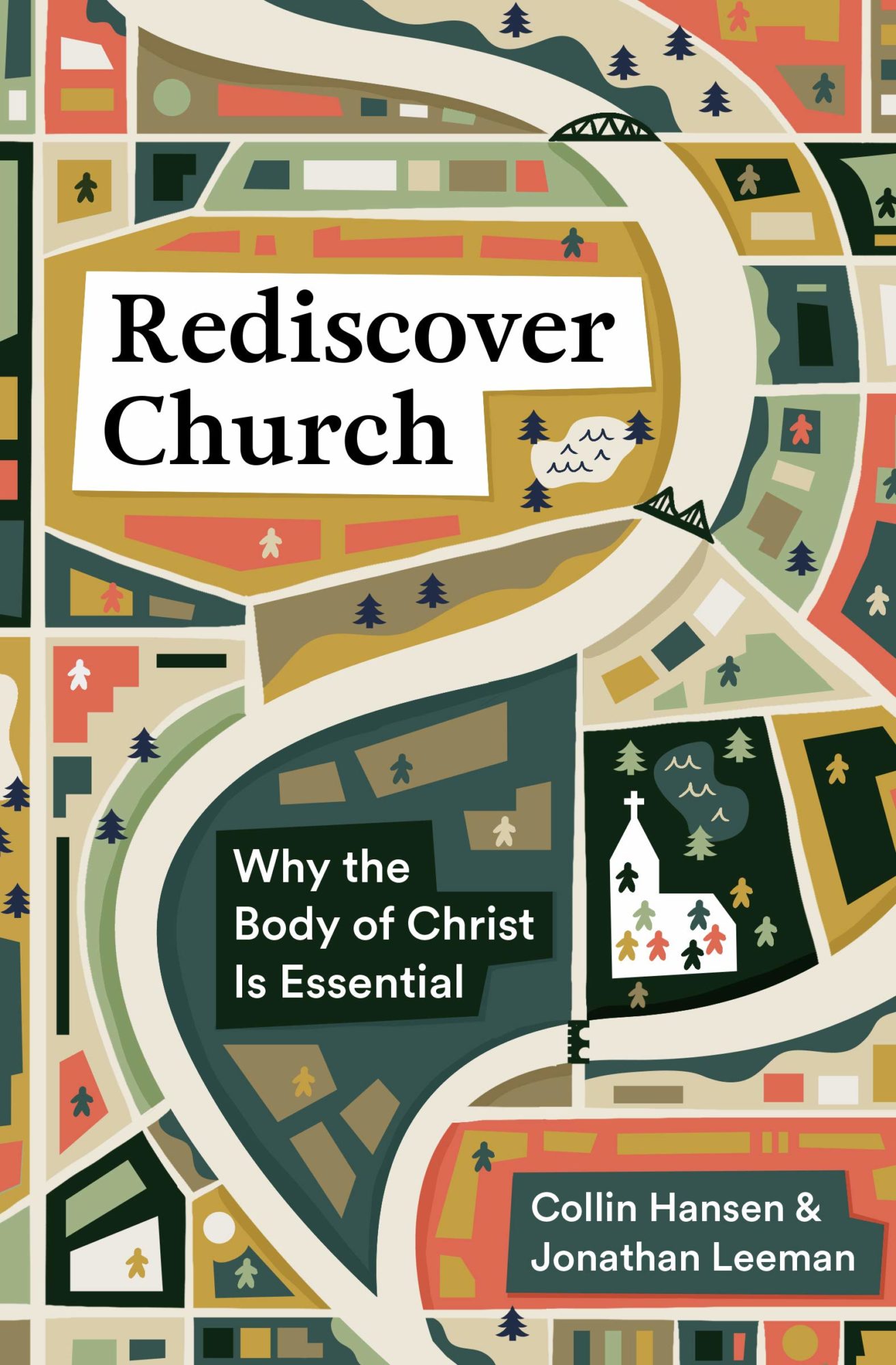I remember, years ago as a young pastor, calling a parishioner I hadn’t seen for a while to check on him. He had belonged to our church for some time and seemed to be growing as a Christian. But a few minutes into our conversation, he mentioned casually that he was now attending another church. Ouch. It was an experience I’ve had numerous times since: the sudden, sinking realization that another person doesn’t care as much as you thought they did about what you imagined you treasured together (your friendship, your ministry partnership, your church family).
Another phone call, years later, was more humorous. I had been interacting with a woman in our town who had experienced plenty of hardships in life and, as a result, had developed a sometimes rough, prickly manner of engaging others that masked a tender heart. Answering my call, she abruptly and aggressively asked, “Who is this?” Because I was returning her call, I replied simply, “Stephen.” “Stephen who?” “Stephen Witmer.” At which point, she uttered the immortal words, “Who the ?&$@ is Stephen Witmer?” When I identified myself as the pastor who was returning her call, she was mortified.
As I consider the past 18 months, I’m reminded of both conversations. Time after time, I’ve been encouraged as I’ve seen God’s people doggedly continuing in the faith, sacrificing to meet the needs of others, remaining committed to the local church, and continuing to give generously. But I’ve also seen others check out, disengage, disappear. I thought it would take more than a pandemic to make these friends pull away from relationships at church, stop reading their Bibles, cease praying. I thought we treasured these things together, but now I’m less certain. I’ve had that surprised feeling when, rather than receiving an expected warm greeting, I’ve heard, “Who the ?&$@ is Stephen Witmer?” Suddenly and unexpectedly, there’s distance between us.
Guide to Rediscovering Church
The question on the minds of many pastors these days is, “How can our drifters be drawn back into fellowship?” I’m grateful that two Christian authors and leaders, both elders in their churches, have sought to ask an even more fundamental question: not simply how to get people back, but how to get them back changed, with some of the fundamental causes of their drifting addressed, so that it doesn’t repeat itself. And I’m thankful these two have teamed up to write a book for the benefit of the broader church: Rediscover Church: Why the Body of Christ Is Essential.

Rediscover Church: Why the Body of Christ Is Essential
Collin Hansen and Jonathan Leeman
Rediscover Church: Why the Body of Christ Is Essential
Collin Hansen and Jonathan Leeman
“A Christian without a church is a Christian in trouble.” Since a global pandemic abruptly closed places of worship, many Christians have skipped church life, even neglecting virtual services. But this was a trend even before COVID-19. Polarizing issues, including political and racial strife, convinced some people to pull away from the church and one another. Now it’s time to recommit to gathering as brothers and sisters in Christ.
In Rediscover Church, Collin Hansen and Jonathan Leeman discuss why church is essential for believers and God’s mission. Through biblical references and personal stories, they show readers God’s true intention for corporate gathering: to spiritually strengthen members as individuals and the body of Christ. In an age of church-shopping and livestreamed services, rediscover why the future of the church relies on believers gathering regularly as the family of God.
Collin Hansen and Jonathan Leeman believe a vital part of helping people reengage with the church—after what we’ve all experienced with the pandemic, political and racial tensions, and vaccine and mask disputes—is helping them think more clearly about what a church is and does:
After all, your understanding of what the church is will shape your life and your living. (23, italics original)
This book aims to help you rediscover church so that you both understand what a church is and in turn discover the richness of living as a brother or sister in the family of God; the joy of living as one part of Christ’s body united to other parts of the body; and the countercultural power of living as one brick in the holy temple where God dwells on earth now. (24, italics original)
We wrote this book to help you rediscover church, so that you could see why the body of Christ is essential. (147)
Hansen and Leeman provide a clear, accessible ecclesiology in just 150 pages. Engagingly written, with personal stories and experiences, it’s an excellent resource. Deep thought about the church and biblical theology is lightly worn, as when the themes of exclusion and exile are presented as the backdrop to church discipline (96). That’s brilliant. The book is quotable, too. “Generally relationships don’t change you for the better if they don’t challenge you at your worst” (144). (Here are 20 more quotes to whet your appetite.)
Engagingly written, with personal stories and experiences, this is an excellent resource.
The book’s simple structure is also a strength. It consists of a chapter-by-chapter exposition of this theological definition of church:
A church is a group of Christians [chapter 2] who assemble as an earthly embassy of Christ’s heavenly kingdom [chapter 3] to proclaim the good news and commands of Christ the King [chapter 4]; to affirm one another as his citizens through the ordinances [chapter 5]; and to display God’s own holiness and love [chapter 6] through a unified and diverse people [chapter 7] in all the world [chapter 8], following the teaching and example of elders [chapter 9].
The clarity of that outline means you always know exactly where you are in the argument of the book.
For those who have read Leeman’s other writings on church, or indeed have engaged more generally with 9Marks material to any significant extent, there won’t be much new in this volume. Rather, its unique contribution is to bring a solid biblical ecclesiology into today’s critical moment in an attractive, compelling, and accessible way.
We Need More Than a Book
I share the authors’ yearning to help people return to church and enjoy a richer, more biblical understanding and experience of church than they had before the pandemic. I’m grateful this book will help with that. But as I consider the magnitude of the transformation that must occur in millions of hearts for that to happen, I’m also struck by how much else is needed in addition to publishing good books like this one, and I’m particularly impressed by the indispensable role the church must play.
While our thinking shapes our behavior, it’s also the case that most people didn’t simply think their way out of coming to church, and therefore they won’t simply think their way back into it. As James K. A. Smith has pointed out, we’re embodied creatures, not just “thinking things,” and there’s often a gap between what we know and what we do. Of course, that doesn’t mean we need less than knowledge, but more.
Smith rightly points to the power of habit, and I’ve certainly found that true in my pastoral experience in the past 18 months. Some in my congregation have told me (when I’ve asked where they’ve been) that they got out of the rhythm of gathering and then found it hard to come back. There may well be an underlying problem with their understanding of church, but they’re certainly correct in identifying the power of our habits (the authors briefly mention this in their introduction).
Most people didn’t simply think their way out of coming to church, and therefore they won’t simply think their way back into it.
So, how might those who have drifted reestablish the habits and rhythms of participation in Christian community? A line from Charles Duhigg’s The Power of Habit is especially interesting here: “For a habit to stay changed, people must believe change is possible. And most often, that belief only emerges with the help of a group.”
Jonathan Leeman’s story testifies powerfully to this reality. When Leeman explains how the Holy Spirit drew him into a church, he says it was through the preaching and the people of a local church (a gospel word and a gospel society). He notes that, although he couldn’t have given a well-formed answer to the question “What is a church?” it was his experience of the gospel word and the gospel society that the Spirit used to draw him.
While that certainly doesn’t rule out the importance of a book written to answer the question, it does demonstrate that something more than an intellectual answer is required. An affection-stirring, habit-shaping community is crucial. And note: not just an attentive, conscientious, pursuing pastor, but all the members of the body being the body.
Equipping Christians to Pursue the Wandering
Obviously, if this is true, there’s a chicken-and-egg problem. How can we help people re-habituate themselves to church gatherings when we, as their church family, are the very ones they’ve fallen out of the habit of joining? At least part of the answer seems clear: we as the Christian community must take the initiative, must come to those who have drifted, must pursue and surround them, must remind them (through word and deed) of what they’re missing.
And that leads to a final question, concerning the intended audience of this book. Throughout the volume, the authors directly address their readers as those who have drifted from church for one reason or another. In other words, it seems the intended audience of Rediscover Church is those who really need to rediscover church. I wonder how likely it is that such people will seek and find this book. Even if someone hands it to them, will they read it? Perhaps. I hope so! But I wonder if the book might function more powerfully in a less direct, more mediated way.
I suspect that the greatest success of the book may come in equipping another group of readers: namely, people like you, the kind of person who reads a TGC book review, someone probably quite committed to church already, but also perhaps sometimes a bit unsure how to articulate that commitment to those faltering in it.
For such people, this book will provide crisp, biblical teaching on the church, equipping them to convey its beauty and necessity to those in their circles who won’t ever find this book on their own (and may not read it even if it’s handed to them). You’ll be able to incarnate and commend the truths of this book to people you know, who know you love them.
In other words, the presence of this helpful book, at this moment, highlights the value of good Christian literature, and the pressing need for congregations to be the very kinds of churches described in Rediscover Church—not least for the sake of those who have drifted away.




































